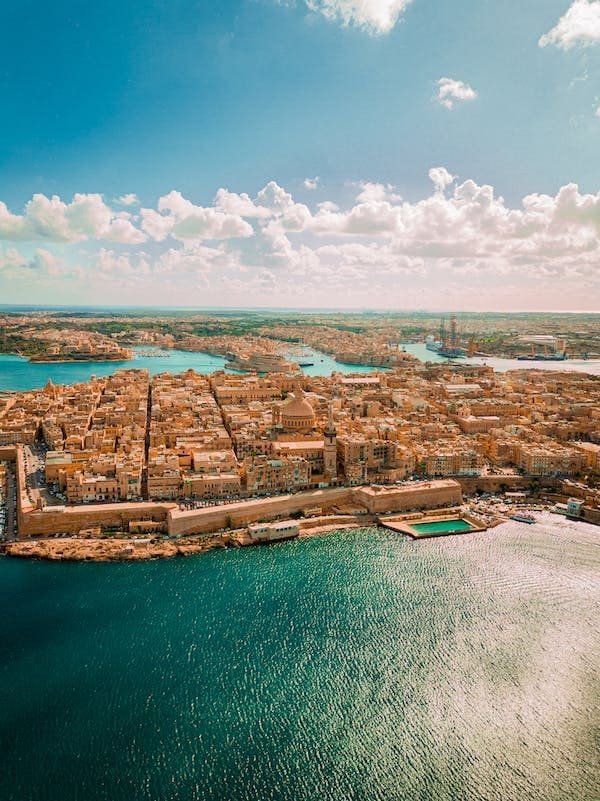Ready for a European adventure? Explore stress-free pathways to permanent residency in 2024. Start your journey to an EU residence permit now!
Dreaming of cobblestone streets, sun-drenched piazzas, and a European lifestyle? Have you considered obtaining an EU residence permit or acquiring Permanent Residence in one of the many charming European countries?
Making your dream a reality is closer than you think, thanks to a variety of accessible pathways to permanent residency in Europe.
Whether you envision yourself sipping espresso in a Parisian cafe, hiking through the Swiss Alps, or soaking up the sun on a Greek beach, there’s a welcoming European nation waiting for you among the easiest countries for your permanent residence options in 2024.
Forget the complexities of navigating the labyrinthine bureaucracies of residency programs or the hefty price tags of traditional investor-based ways to get permanent residence.
This guide unveils the easiest and most realistic paths to securing your permanent residency in Europe in 2024. From entrepreneurial ventures and remote work opportunities to family reunification and investment options, we’ll explore diverse avenues tailored to your skills, budget, and lifestyle aspirations.
So, pack your bags, dust off your language skills, and get ready to embark on a journey that will transform your dreams into your European reality.
Understanding Permanent Residency in Europe

Navigating the complex world of European residence permits can feel daunting, but understanding the key distinctions between temporary residence, EU residence permits, and getting permanent residency is crucial for charting your course.
This section clarifies these concepts and empowers you to make informed decisions on your journey to get permanent residency in European countries, especially among the easiest countries for your permanent residence options in 2024.
Difference Between Residence Permits and Permanent Residency
- Residence Permits: These temporary authorizations allow you to live and work legally in a specific EU country for a defined period. Depending on the type (work, study, family reunification), you may enjoy limited rights like healthcare access and travel within the Schengen Area.
- Permanent Residency: The holy grail of European living, permanent residency grants you rights that are nearly equal to those of EU citizens. You can freely live, work, study, and travel throughout most of the EU.
The main difference between residence permits and permanent residency is the level of rights and duration of stay they grant.
Residence permits are temporary and come with limited rights, while permanent residency allows for long-term stay and near-equal rights to EU citizens. Permanent residency also allows for greater freedom of movement within the EU, and you have access to healthcare and social benefits.
Permanent residency is typically granted after living in a country for a certain number of years and meeting specific criteria, such as stable income and integration into the local community.
It is a more secure and long-term status compared to residence permits, which are temporary in nature and often require renewal, especially in the easiest countries for your permanent residence options in 2024.
Understanding EU Vs Non-EU Pathways

- EU Citizens: As fellow EU members, you enjoy the freedom of movement within the bloc. Obtaining permanent residency in another EU country is often a streamlined process through registration or declaration of residence.
- Non-EU Citizens: The road to permanent residency for non-EU citizens generally involves meeting specific requirements, such as holding a long-term residence permit, fulfilling investment quotas, or demonstrating economic integration. Non-EU citizens may also have to prove their proficiency in the language of the country where they are seeking permanent residency, as well as showing a clean criminal record and being able to support themselves financially. The process can also involve a waiting period before permanent residency is granted.
The requirements for permanent residency for non-EU citizens can vary greatly from country to country, so it is important to thoroughly research and understand the specific requirements and process for the country where you wish to obtain permanent residency.
Overall, obtaining permanent residency as a non-EU citizen can be a more complex and rigorous process compared to EU citizens, but with careful planning and preparation, it is certainly possible, especially in the easiest countries for your permanent residence options in 2024.
Demystifying Your Path to Europe: Unveiling Your Residency Options
Europe beckons with open arms, yet the path to permanent residency can seem shrouded in mystery. Fear not, intrepid traveler!
This guide unveils the diverse tapestry of residency pathways, empowering you to choose the one that aligns with your dreams and skills.
1. Family Reunion: Weaving Together Loved Ones, Weaving a Life in Europe
- Embrace the warmth: If you have an EU citizen as a family member (parents, children, siblings, or even grandparents!), you may qualify for reunification. Gather documents like birth certificates and marriage licenses to prove your bond.
- Strength in numbers: Enjoy the benefits of family sponsorship, including access to healthcare, education, and support in navigating cultural nuances. However, integration challenges may arise, so embrace language learning and community engagement.
- Navigating the system: Understand the residency and work permit requirements in your host country, and seek legal counsel if needed. Stay informed about changing immigration policies and maintain open communication with local authorities.
- Building a home: Find a place to call your own, whether it’s a new apartment or house, and establish roots in your new surroundings. Create a support network of friends and fellow expats, and explore local traditions and customs to foster a sense of belonging.
- Making memories: Celebrate holidays and milestones with your loved ones, and create new traditions that blend your cultural heritage with your European surroundings. Share stories and experiences with your family back home, and cherish the connections that span across continents.
Weaving a life in Europe is a journey of love, resilience, and growth. Embrace the opportunity to reunite with your family, and weave together the tapestry of your lives in a new and vibrant setting.
2. Residency by Investment: Paving Your Way with Bricks and Mortar (and Euros)

- Golden Touch: Golden Visa programs unlock residency through investment, primarily in real estate. Popular options in Portugal, Greece, and Spain offer stunning landscapes and residency within 6-12 months.
- Laying the Foundation: Minimum investment thresholds vary, but expect costs starting at €250,000. Enjoy residency benefits like visa-free travel and potential property appreciation.
- Beyond bricks and mortar: Consider business investments too! Contribute to the local economy by starting a company, but be prepared for stringent requirements and economic impact considerations.
- Remember, Rome wasn’t built in a day: Market fluctuations and long-term commitments are realities. Seek professional guidance and diversify your portfolio for a secure future. While investing in real estate can provide a pathway to residency in a desirable location, it is important to consider all the aspects and potential risks involved carefully.
Market fluctuations can impact the value of your investment, and long-term commitments are often required in this residency by investment programs. Working with a professional advisor to diversify your investment portfolio can help mitigate these risks and ensure a secure future. - In addition to real estate, consider exploring business investments as well. Starting a company can contribute to the local economy and may also provide opportunities for residency. However, be prepared for stringent requirements and economic impact considerations when pursuing this option.
Ultimately, residency by investment offers a golden opportunity for individuals seeking to establish themselves in a new country. By carefully weighing the costs and benefits, seeking expert guidance, and considering both real estate and business investments, individuals can pave their way to residency with confidence, especially in the easiest countries for your permanent residence options in 2024.
3. Work Permit and Skilled Migration: Where Talent Meets Opportunity
- The Blue Card: Your passport to skilled opportunities: If you’re a highly skilled professional, the EU Blue Card grants you a fast-track to residency in countries like Germany and France.
- Be your own boss: Unleash your entrepreneurial spirit with start-up visas and freelancer permits, thriving in hubs like Berlin and Barcelona.
- Filling the skills gap: Industries like tech, healthcare, and engineering often crave foreign talent. Hone your skills in these sectors and explore sector-specific migration schemes.
- Bridging the linguistic gap: Remember, language is the key to unlocking hearts and career opportunities. Embrace local languages and immerse yourself in the vibrant cultural tapestry.
Navigating the visa process and understanding the requirements for skilled migration can be complex, but the opportunities for career growth and personal development are boundless.
Whether you’re a software engineer, healthcare professional, or mechanical designer, there are numerous avenues to explore in order to make your international career dreams a reality.
By obtaining a work permit or skilled migration visa, you can access a wide range of job opportunities and contribute to the economic growth of your host country. Whether you choose to work for a multinational corporation, start your own business, or join a cutting-edge research team, the possibilities are endless.
If you’re passionate about making a positive impact in your chosen field, now is the time to take the next step in your career journey. Embrace the opportunities that skilled migration and work permits offer, and unlock a world of possibilities as you work, live, and thrive in a new country, especially exploring the easiest countries for your permanent residence options in 2024.
This Article is Free for Subscribers
Access 2000+ premium insights, visa updates, and global lifestyle stories all in one place. <div> For Subscribers, Login here



































